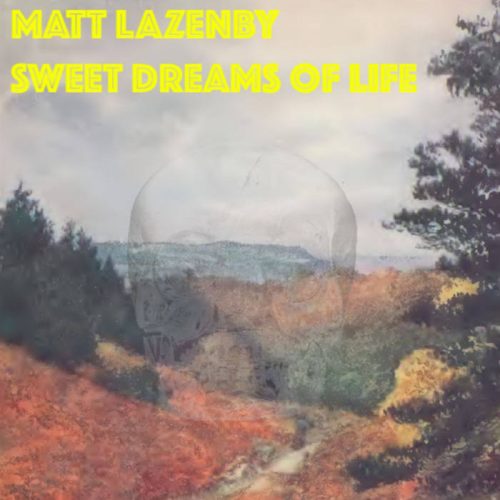There’s a strain of wistful nostalgia that runs through “Sweet England”, a new song by the English-born, Montreal-based folk musician Matt Lazenby. Our narrator, who is similarly separated from his home country, pines for a return to the sweet England of the title, which he paints in warm colors in contrast to his current situation. His father dies, and after struggling with poverty for a while his mother dies as well. Now that he’s alone in the world, he promises: “if I were in England, no more would I roam.”
At the end of the song, our narrator gets his wish: his aunt has a cottage in the English countryside, and he thanks God that he’s home again as he walks through the door, flanked by rose bushes. Finally, he’s back where he belongs; he’s suffered pain and loss and poverty, but now he gets to savor the sweet simplicity of pastoral life in his beloved homeland.
Of course, England is neither sweet nor simple. The history of England is long, complex, and bloody; it is filled with war, class struggle, religious persecution, and imperialism. Even in times of peace and prosperity, life was hardly the picture of bucolic bliss that “Sweet England”’s narrator longs for. While it’s unclear when the song takes place (although some deliberately antiquated language, like referring to food as “bread”, suggests it was some time ago), chances are that it’s not quite the happily-ever-after it appears to be at first glance.
“Sweet England” isn’t a perfect song–there’s only one real melody, and some of the lyrics can get a little clunky–but its dramatic irony makes it more than a pleasant-enough folk tune. It’s possible that I’m reading too much into it; it certainly wouldn’t be the first time. Still, you can find some hints of discord in the instrumentation.
You see, “Sweet England” has two guitar parts. The main one is sweet and jangly, aided by what sounds like a banjo; this establishes the song’s wistful, autumnal tone. The other serves as a sort of counterpoint, adding strange, dissonant touches in the quiet moments between Lazenby’s lyrics. Here, a rolling flourish that stops as suddenly as it starts; there, a clanging, insistent chord that sounds like the guitar’s being angrily choked. Right before the final verse, the two guitars play at the same time, and it’s an interesting balancing act: the gentle atmosphere is never quite disturbed, but there’s a sharpness to the sound as well. It’s like walking through a lovely English garden and trying to ignore the nettles.
For all I talk about the dissonant subtext, it’s clear that Lazenby has a great deal of affection for England, which I certainly don’t hold against him. After all, it’s an affection that I share: some of the happiest weeks of my life were spent in London, and I can’t help but feel a little dreamy when I look at pictures of the Cotswolds or rolling, verdant English pastures. But my affection is not naive, and neither, I suspect, is Lazenby’s. He’s surely aware of the chaos that’s occurring: Brexit, the pandemic, the inherent disaster of a Tory government. He knows that his country is beautiful, but he knows the cost and the fragility of that beauty, even if his narrator doesn’t.







